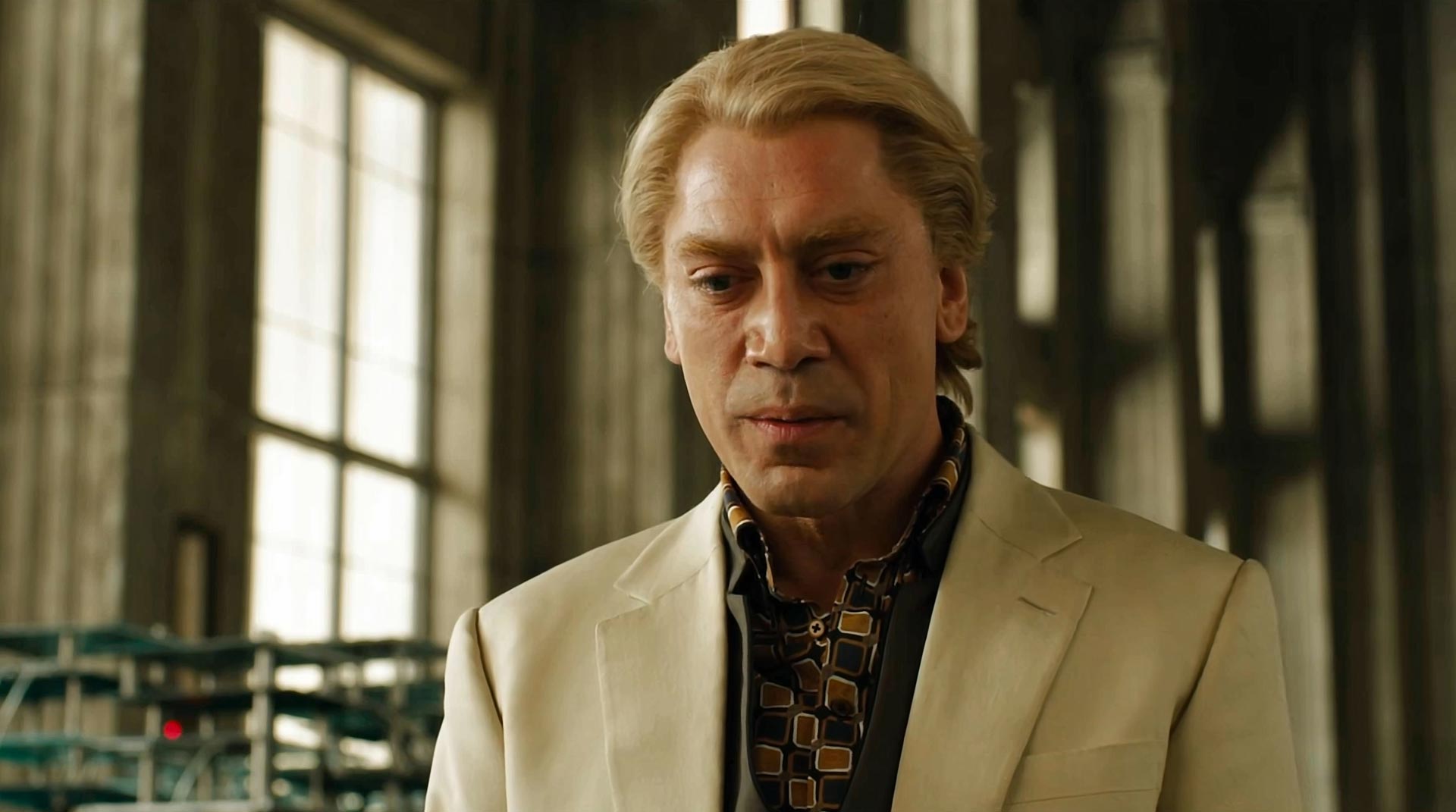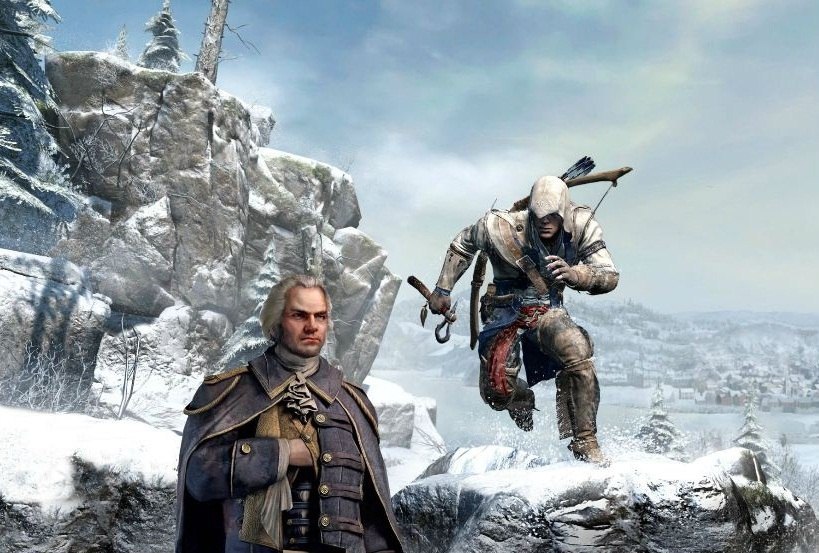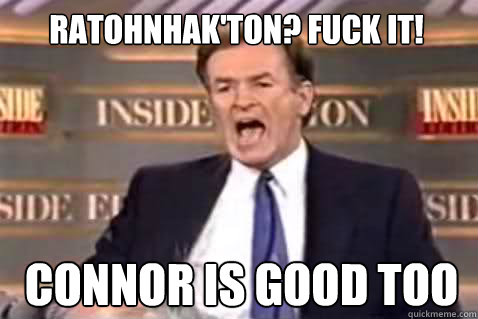This movie should not be as awesome as it is
The movies are gloriously stupid. The original The Fast and the Furious is a poor-imitation of Point Break, but what it lacks in creativity it makes up for with flashy car culture. Paul Walker's very existence might be a testament to how underappreciated Keanu Reeves really is, but Vin Diesel at least brings a sense of authenticity to the film. You just can't help but love a guy whose earnest personality shines through as much as Diesel's does, whatever he may lack in acting talent. The movie's fetishization of fast cars isn't really my thing but it's at least well executed, as are the (often anime-inspired) car races/chases. None of them really wowed me but that's partially because the film's real focus is the character dynamics -- admittedly an odd choice given the cast, but somehow it works.
The franchise takes a bit of a wrong turn with its first sequel, 2 Fast 2 Furious. It's easily the worst of the bunch, as it loses Diesel and focuses on the much less likeable Walker, and tries to make up for the net loss in charisma with Tyrese Gibson, Eva Mendes, and Cole Hauser. Spoiler warning: that attempt fails. Gibson is an awkward mess of one-liners, Mendes' role and performance could easily have been fulfilled just as well by a cardboard cutout, and Hauser seems like he's only in the movie because he lost a bet. The cast is a void of personality and they're given very little to work with. I actually felt sorry for Gibson when he had to utter the despicable phrase, "It's a ho-asis in here," with the script foolishly over-compensating for the film's deficiencies by laying on the machismo so thick it's self-defeating, not to mention sexist. What's worse, the movie even fails to deliver compelling driving sequences. In trying to up-the-ante from the (relatively) grounded races in the original, 2 Fast 2 Furious relies too heavily on special effects sequences in which simulated motion blur and trails of light convey tension through the illusion of velocity. The movie lacks interesting characters to drive the plot forward and fails to live up to its car-festishization heritage by making the classic too-much-SFX mistake in an attempt to top its predecessor. The entire thing feels perfunctory and aimless, and ends up being entirely pointless. The only bit of 2 Fast 2 Furious worth remembering comes right at the end, when Walker jumps a car onto a moving boat and Gibson almost breaks the fourth wall by pointing out that "This is some real Dukes of Hazzard shit!" It's the only time the movie really seems to get how stupid it is, which is precisely the strength of some later entries in the series.
Next up is The Fast and the Furious: Tokyo Drift, a significant departure that singlehandedly resuscitated an otherwise dead franchise. It's easy to see why this gem saved the series given that it embraces the things that made the original Fast and the Furious great (compelling character dynamics, ostentatious car culture, and great driving action that's heavily inspired by anime) while avoiding all the pitfalls that ruined 2 Fast 2 Furious (over-focus on special effects, too much reliance on the previous films, and Paul Walker). Really, the status of this movie as a Fast and the Furious movie is something of a misnomer, as (until the final epilogue moment) the only tie between Tokyo Drift and its namesake is the focus on car racing culture. The movie stands on its own with an entirely new cast of characters playing out the classic fish-out-of-water story archetype. It's a movie that effectively tells a familiar tale, has a good time in doing so, and love for fast, flashy cars. In fact, Tokyo Drift actually features the best car scenes of the entire franchise by far, as the reorientation to Japan comes with a new and inherently more cinematic racing style: drifting. The driving sequences are less about raw speed and more about tight turns, isolated moments of tension that are much easier to frame in a camera shot, and this allows the film to revel in actual footage of talented car racing and stunts as opposed to hyper-stylized special effects sequences. It's a welcome change that makes the movie a worthwhile celebration of car racing. Also, the guest star appearance of Sonny Chiba late in the film is a great move that helps contextualize and raise the stakes for the very competent cast of otherwise unknown actors (I'm pretending Bow Wow is just another actor because it's easier to appreciate his role if you ignore his star "power").
The fourth entry in the series, Fast & Furious, is a fun if forgettable return to the franchise's roots. Paul Walker and Vin Diesel are back, as are most of the original cast, and once again there's a plot about going undercover to bring down a criminal enterprise. It's all serviceable but definitely not compelling in its own right, and seems more transparently than it should like an excuse to get Walker and Diesel back into fast cars. There's just not a lot of reason for the viewer to care beyond the presence of those two actors, as Fast & Furious intentionally makes it difficult to relate to their motivations: there's a weak shell game with the villain late in the film that eliminates the possibility of a proper antagonist; more crucially, Michelle Rodriguez's death provides Diesel's motivation but the event occurs off camera at some undefined point after the opening set-piece, and so we're asked to understand his actions simply based on information told to us and a relationship established in a different movie. It's a bit of a mess, but Fast & Furious at least builds on the previous entries to deliver compelling driving sequences. Keeping in mind the strengths of Tokyo Drift, the driving in Fast & Furious is more about practical than special effects, and it makes up for a less cinematic racing style with more stunts and crashes. It's a somewhat effective strategy, but in attempting to remain grounded in reality the movie suffers from "cars driving in a straight line" syndrome.
Finally, there's Fast Five. Hot damn. This movie transforms the franchise into a strange and incredible cross between Ocean's Eleven, The Bourne Identity, and The Fugitive. There's even a little Clear and Present Danger thrown in at one point. All the while the movie retains the Fast and Furious franchise's telltale focus on driving action, and wisely remains grounded in practical-based effects work -- but those scenes are now centred on utterly insane, high-concept set-pieces that are occasionally accented with digital effects work. Director Justin Lin manages to avoid all of the problems with the earlier movies and take their best elements and crank em up to 11. In the first twenty minutes we're given two insane action sequences (including crashing a truck into a moving train!) and two great antagonists: Joaquin de Almeida is always a fantastic villain, and Dwayne Johnson serves as a great source of tension and counterpoint to Vin Diesel. From there the cast of earlier Fast films are reassembled into a crack team for the ultimate heist. It's an absurd but fun plot that does the trick, conveniently setting up the most ludicrous driving sequence in the franchise to-date. All the while the film takes loving, fourth-wall-breaking pot-shots at itself, with Walker and Diesel carelessly winning an obligatory street race off-camera (because as if they could possibly lose at this point) and Johnson instructing his men not to "ever, ever" let the protagonists get into cars. The best is definitely when Sung Kang's Han acknowledges the franchise's irreverent approach to chronology, saying they'll get to Tokyo "eventually" as a nod to the fact that (spoiler alert) he dies in Tokyo Drift, the last entry in the Fast and the Furious timeline. The whole thing is silly, fun, and gracefully executed, making Fast Five a much better movie than I ever expected.
Given how much I obviously enjoyed Fast Five, I'll be curious to see where the franchise goes with Fast and Furious 6. Apparently they're bringing characters back from the dead now, which they've sort of done before with Han albeit not in-cannon. On top of that the villain seems to be a stand in for Heath Ledger's Joker, stating in the trailer that "the code [Diesel et al] live by makes [them] predictable," which is almost word for word what the Joker told Batman in the iconic interrogation scene in The Dark Knight. I'll be curious to see how that move plays out, as Skyfall pulled off the same thing and that movie took itself way more seriously than I expect Fast and Furious 6 will. If nothing else, this next entry in the Fast and Furious franchise will provide one more opportunity to bring the cast together for more silliness and car-based mayhem.
Skip to 1:26 for the villain's Joker-esque line about the heroes' "code"
I really didn't expect to end up liking the Fast and Furious movies. I figured they'd be stupid and a waste of time, and in fairness I was right to a certain extent. 2 Fast 2 Furious is a frankly terrible movie, Fast & Furious is difficult to care about despite enjoying other entries in the series, and I'd rather watch Point Break than the original The Fast and the Furious any day. But that said, The Fast and the Furious: Tokyo Drift is a great movie, full stop, and Fast Five is way more self-aware and fun than it has any business being. If Justin Lin can bring the kind of inspiration he's brought to the franchise two out of three times with Fast and Furious 6 then we could all be in for a real treat in a couple of weeks. A real stupid, loud, explosive, and flashy treat.
So I guess the Fast and the Furious franchise gets the elusive/über-pretentious "Max Rambles Stamp of Approval." Who'd have seen that one coming?












